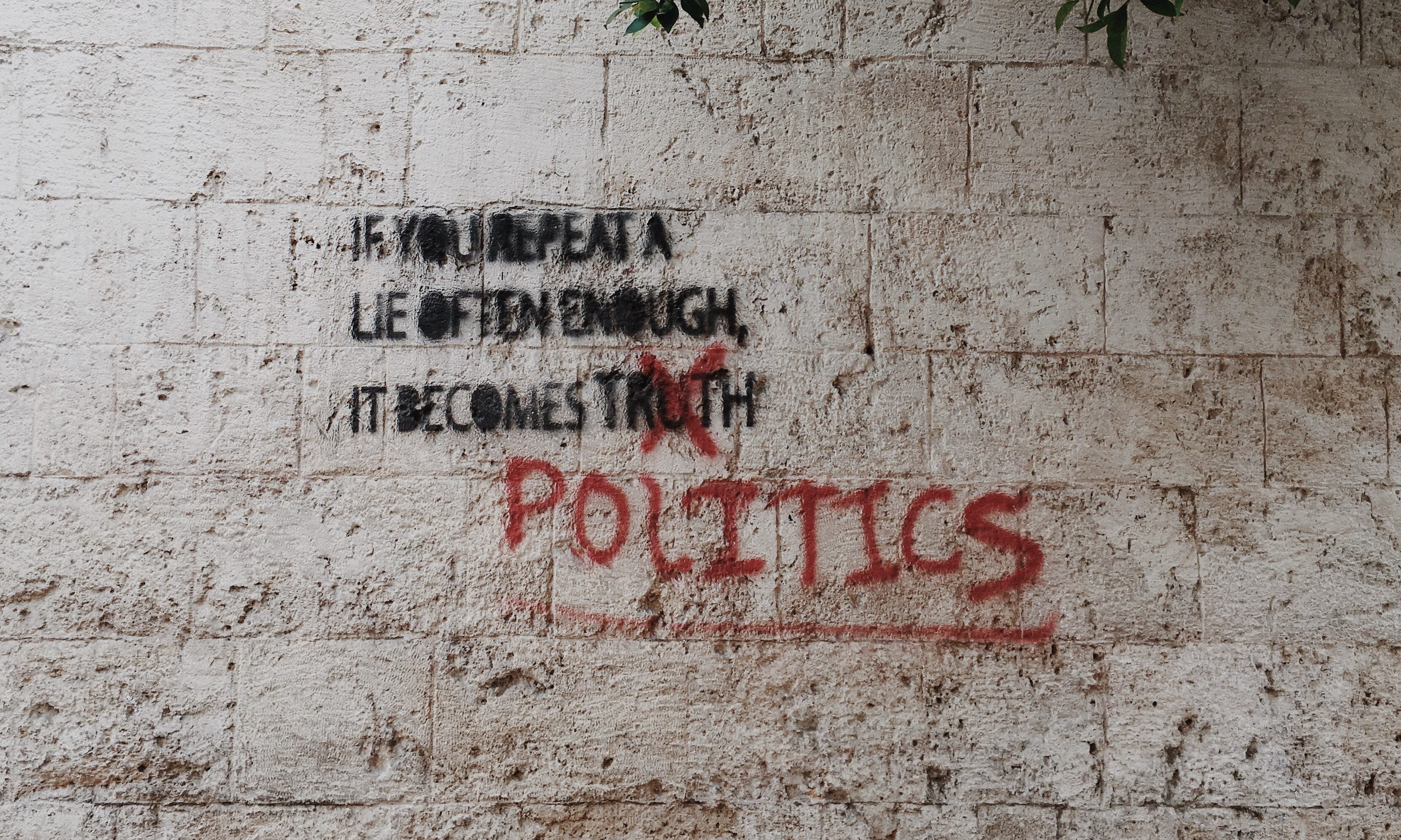In “Your political beliefs don’t justify racism”, Andrew Wang discusses an incident that involved several teenage boys wearing shirts to celebrate throwing Mexican immigrants over the wall and his school’s response of discussion about politics without an actionable plan or clarity of positions on the matter.
My response to politics used in this vein is similar to my position on how religion is sometimes used (see Religion is not a Weapon). We must clarify the definitions of ‘difference of opinion’ and ‘harm’. The origins of political parties date as far back as the 1600s (see scholastic origins of political parties) intended to help bring organization and structure to political activities so everyone could have a voice, or at least a representative of their views in meetings. However, during the American Revolution, these parties, or factions as they were sometimes criticized to be, were not entirely philosophically supported by our early leaders. Yet, they supported them in action, nonetheless. Why?
Well, we can’t be sure of course at this point, however, if we consider science, we can garner some ideas. First, our brains can’t handle and overabundance of information all the time. We need metaphorical bumpers or filters if you will. Otherwise, we become overloaded and overwhelmed. Heuristics, or the ability to group things, ideas, or issues, can be very helpful. Political parties allow us to do this. They essentially ‘bundle’ positions for us in what we now call platforms. Second, we all have the need to be heard and there is strength in numbers, as they say. So it is no surprise that we’ve grown to group people together behind a set number of policies to support. Third, most people want to feel like they belong to something bigger than themselves. Political parties both provide a sense of belonging to a club while simultaneously allowing people to feel part of a movement.
All of these pieces, make it near impossible to break up the party system – because when biology is the foundation for its usefulness, humans will perpetuate its existence.

So next time someone asks you why we can’t get rid of the parties…well, you can simply say…our bodies need it. 😉
But that said, does it give us the right to wield our beliefs as a blanket justification for anything we say or do? The answer is emphatically no. This is a common issue in psychology as it is not infrequent for someone to justify harm to another, to oneself, or to account for atypical behavior as being because of some personal belief. Everyone is entitled to their beliefs. People can have a difference of opinion. We can exercise our First Amendment Rights. But we cannot use such beliefs, opinions, or rights to justify the infliction of harm on oneself or others.
The difficulty comes when we try to define where that line is drawn. The line is this: When what you do or say results in physical, mental, or emotional harm to others, there is no position, group, text, or belief that makes ones actions allowable.
Just as there is a difference between facts and opinions, so too are their differences between beliefs and harm. We must clarify these lines for our nation or we will predictably find ourselves in a sea of confusion where the loudest, but perhaps least informed, voices rise to the top and lead us to places we never intended or wanted.
Clarity of facts and definitions of harm must be maintained for a society to operate with safety and reason.





 The testimony of Dr. Ford has brought our nation to a boiling point of frustration, fear, anger, and strategic politicking. How do we sort this out? Who do you believe? What should happen next?
The testimony of Dr. Ford has brought our nation to a boiling point of frustration, fear, anger, and strategic politicking. How do we sort this out? Who do you believe? What should happen next?
 It is so commonly the case that every minute, every dollar, every meeting needs to be requirements-driven, justified, and the outcomes clarified. Of course this has developed out of a necessity for accountability but in the act of severe control, we lose the benefits of creativity, thought safety, excitement to explore and create. The most innovative companies
It is so commonly the case that every minute, every dollar, every meeting needs to be requirements-driven, justified, and the outcomes clarified. Of course this has developed out of a necessity for accountability but in the act of severe control, we lose the benefits of creativity, thought safety, excitement to explore and create. The most innovative companies When most of us discuss policy, we are referring to the platform of a particular political party or a particular candidate. However, policy in the Government has a different meaning – it refers to the set of documented rules or recommendations people or groups within Government or entities outside of Government, such as companies, shall act. In the case of recommendations, or “instructional policies”, agencies have the option of following them. They are not required rules. Typically, these are considered best practices and the documents act as supportive reasoning for decision making. But with other policies, whether they be laws written by Congress, Executive Orders written by the President, or policies within Governmental agencies, they must be followed. All this makes sense….until….
When most of us discuss policy, we are referring to the platform of a particular political party or a particular candidate. However, policy in the Government has a different meaning – it refers to the set of documented rules or recommendations people or groups within Government or entities outside of Government, such as companies, shall act. In the case of recommendations, or “instructional policies”, agencies have the option of following them. They are not required rules. Typically, these are considered best practices and the documents act as supportive reasoning for decision making. But with other policies, whether they be laws written by Congress, Executive Orders written by the President, or policies within Governmental agencies, they must be followed. All this makes sense….until….
 To be fair, it’s not about the corporations themselves, it’s about the dreamers, the innovators, the mind racers – it’s the ones that stay up late at night, who wake up before the sun with an idea they can’t shake, who are driven beyond reason to address seemingly impossible problems. It’s these people that start with a crummy sign taped to a small office but who can, in great detail you never want to hear to the end, explain all the intricacies of how they are going to achieve their goals. Most of us just shake our heads as we listen to the outrageous stories….until….they achieve them.
To be fair, it’s not about the corporations themselves, it’s about the dreamers, the innovators, the mind racers – it’s the ones that stay up late at night, who wake up before the sun with an idea they can’t shake, who are driven beyond reason to address seemingly impossible problems. It’s these people that start with a crummy sign taped to a small office but who can, in great detail you never want to hear to the end, explain all the intricacies of how they are going to achieve their goals. Most of us just shake our heads as we listen to the outrageous stories….until….they achieve them.
 There is an old parable about the wind and the sun and a man with a coat. The wind and sun make a bet challenging the other to get the coat off the man. The wind blows and blows but the man holds tighter onto his coat and the wind is not strong enough to force it off. The sun takes her turn and simply shines her rays. As the man becomes too hot, he voluntarily removes the coat and the sun wins the challenge.
There is an old parable about the wind and the sun and a man with a coat. The wind and sun make a bet challenging the other to get the coat off the man. The wind blows and blows but the man holds tighter onto his coat and the wind is not strong enough to force it off. The sun takes her turn and simply shines her rays. As the man becomes too hot, he voluntarily removes the coat and the sun wins the challenge.

 In a recent essay by Phil Klay (
In a recent essay by Phil Klay (

 I gave a talk yesterday to a group of young people aged mostly 25-35 and I realized quickly that although I was used to being one of the most dynamic and energetic people in the room, with these youngsters, I was, perhaps not dull…but certainly out of touch with their generation. I watched, I learned, I took notes. What did I find?
I gave a talk yesterday to a group of young people aged mostly 25-35 and I realized quickly that although I was used to being one of the most dynamic and energetic people in the room, with these youngsters, I was, perhaps not dull…but certainly out of touch with their generation. I watched, I learned, I took notes. What did I find?
